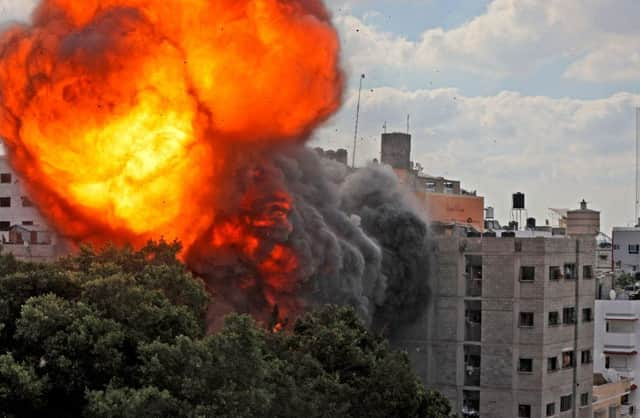What is Palestine? State that claims Gaza, West Bank and Jerusalem explained - and meaning of ‘Free Palestine’


Violence has continued to rage between Israel and Palestine, with Monday (May 17) seeing some of the heaviest attacks yet.
Calls for an end to the violence from the international community have grown louder, with almost 200 people having been killed in Gaza over the past few weeks.
What is Palestine - and where is it on a map?
Advertisement
Hide AdAdvertisement
Hide AdUp until 1948, ‘Palestine’ usually referred to the region located between the Jordan River and the Mediterranean Sea, with Arabs living in this region having been known as ‘Palestinians’ since the early 20th century.
However, much of this land is now known as present-day Israel after the Israeli Declaration of Independence on 14 May 1948.
In the modern day, ‘Palestine’ theoretically includes the Gaza Strip, bordering Israel and Egypt, and the West Bank, a territory between Jordan and Israel).
The situation is complex, however, with no international consensus regarding whether Israelis or Palestinians have claim to certain parts of land, with many areas claimed by Palestinians actually occupied by Israelis.
Gaza, for instance, is home to large numbers of Palestinians but controlled in certain respects by Israel, with a dependence on them for utilities like water and electricity.
Why is there conflict between Israel and Palestine?
The Israeli-Palestinian conflict, in very basic terms, is a struggle over who gets what land and how that land is controlled.
The roots of the conflict go back 100 years, when Britain took control of the area known as Palestine after the ruler of the area was defeated in World War One.
The land was mostly inhabited by Arabs at the time, but Britain was implored by the national community to create a homeland for Jewish people, who laid historical claim to the land.
Advertisement
Hide AdAdvertisement
Hide AdPalestinian Arabs opposed the move, saying they had a claim to the land.
After World War Two, in 1947, the UN voted for Palestine to be split into separate Jewish and Arab states.
It was at this point that Jerusalem became an international city.
The vote was accepted by Jewish leaders, but Arab leaders rejected the plan and it was never implemented.
Unable to solve the issues, British rulers left the area in 1948 and Jewish leaders subsequently declared the creation of the state of Israel.
The move angered Palestinians, causing a war in which troops from nearby Arab countries invaded.
The war led to thousands of Palestinians being forced out of their home, and by the end of the conflict, Israel were in control of the majority of the territory.
Jordan occupied land which became known as the West Bank, while Egypt occupied Gaza.
Advertisement
Hide AdAdvertisement
Hide AdThe city of Jerusalem was left divided between Jordinian forces in the East and Israeli forces in the West.
There was never a peace agreement made between the sides, meaning wars and fighting have followed ever since.
"Free Palestine” is a slogan usually used by people who wish to see Palestine given autonomy over some or all of the land in the region.
What religion are people in Palestine?
Islam is the dominant religious group in Palestine, with around 85 per cent of people in the region being muslim. However, there are some other religious groups in the area, including Christians.
What solutions have been suggested?
One approach to solving the conflict is a ‘two-state solution’ in which Palestine would be established as an independent state in Gaza and the majority of the West Bank, while the rest of land would be given to Israel.
Both sides, however, are very divided with regards to how this would work in practice.
The alternative to this is a ‘one state solution’ in which all of the land becomes Israeli territory or Palestinian territory.
